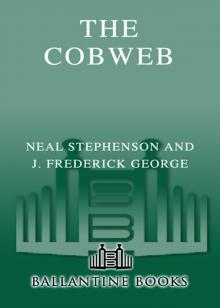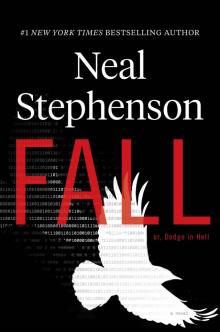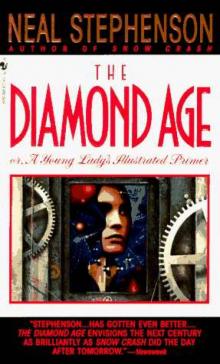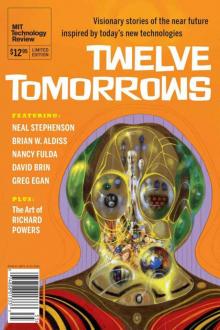 Zodiac: The Eco-Thriller
Zodiac: The Eco-Thriller The Mongoliad: Book One
The Mongoliad: Book One Snow Crash
Snow Crash The Confusion: Volume Two of the Baroque Cycle
The Confusion: Volume Two of the Baroque Cycle The Rise and Fall of D.O.D.O.
The Rise and Fall of D.O.D.O. The Diamond Age: Or, a Young Lady's Illustrated Primer
The Diamond Age: Or, a Young Lady's Illustrated Primer The Big U
The Big U The System of the World: Volume Three of the Baroque Cycle
The System of the World: Volume Three of the Baroque Cycle The Cobweb
The Cobweb Reamde
Reamde Fall; or, Dodge in Hell
Fall; or, Dodge in Hell Interface
Interface Quicksilver
Quicksilver The Mongoliad: Book Three
The Mongoliad: Book Three Seveneves
Seveneves Atmosphæra Incognita
Atmosphæra Incognita In the Beginning...Was the Command Line
In the Beginning...Was the Command Line Anathem
Anathem The Rise and Fall of D.O.D.O.: A Novel
The Rise and Fall of D.O.D.O.: A Novel The Mongoliad: Book Two
The Mongoliad: Book Two Diamond Age or a Young Lady's Illustrated Primer
Diamond Age or a Young Lady's Illustrated Primer THE System OF THE WORLD
THE System OF THE WORLD The Mongoliad: Book One tfs-1
The Mongoliad: Book One tfs-1 Some Remarks: Essays and Other Writing
Some Remarks: Essays and Other Writing Zodiac
Zodiac Spew
Spew The Baroque Cycle: Quicksilver, the Confusion, and the System of the World
The Baroque Cycle: Quicksilver, the Confusion, and the System of the World The Diamond Age
The Diamond Age Reamde: A Novel
Reamde: A Novel In the Kingdom of Mao Bell
In the Kingdom of Mao Bell Mother Earth Mother Board
Mother Earth Mother Board Twelve Tomorrows - Visionary stories of the near future inspired by today's technologies
Twelve Tomorrows - Visionary stories of the near future inspired by today's technologies The Confusion
The Confusion The Great Simoleon Caper
The Great Simoleon Caper The Mongoliad: Book Three tfs-3
The Mongoliad: Book Three tfs-3